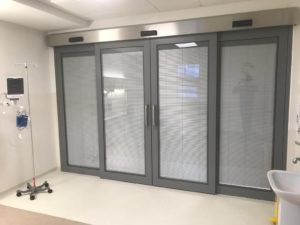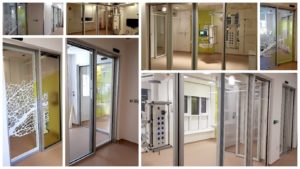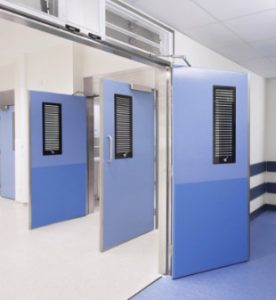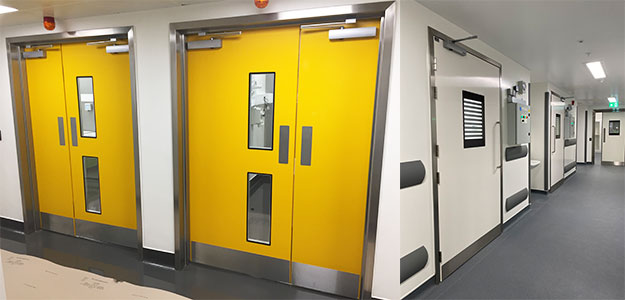
What is an ICU?
Intensive care units (ICUs) provide around-the-clock care for people who are critically ill. Patients in ICU units are severely ill and require much more hands on care than in normal wards which makes them more susceptible to HAI’s. This is why the design of ICU facilities has become an essential part of preventing HAI’s and improving both patient safety and infection control.
ICU doors need to meet strict requirements in ICUs as they’re in such a critical environment. ICU doors can be a major source of contamination due to the fact they are the piece of furniture which is touched the most by patients and staff. This is why it’s critical that the correct doors are specified for ICU facilities.
We’re experts at providing specialist doors for ICUs
In hospital environments, safe and efficient patient care requires the versatility, durability and safety features of Dortek ICU doors.
Dortek doors have a hygienic flush surface which is easy to keep clean. Our large glass door blades are strong and durable and help to maximise vision and light, even when the doors are shut. Our glass doors can also be provided with x-ray rated glass, blinds or smart glass for patient privacy.
Doors can be automated to provide hands-free entry and further reduce the risk of infection. Dortek uses an intelligent automation which is key for user safety. Our door automations react to the smallest obstruction and photo sensors stop the door from closing onto passing traffic. We also provide a range of access control systems, locking and interface with BMS (Building Management Systems) for extra security.
Our doors are designed for intensive care units, but they’re also ideal for laboratories, surgical suites, waiting areas and diagnostic imaging areas. We have an extensive range of case studies from across the globe where we have fitted & supplied our specialist healthcare doors. You can find them here.
Hermetically Sealing ICU Doors
Dortek’s hermetically sealing sliding glass doors are designed specifically to help cut the spread of airborne infection.
The door has a unique patented track system so it seals perfectly against the floor and frame. The efficiency of the seal has been officially tested and results show it to be over 99% effective thus helping to reduce air handling costs, the incidence of wound infections and cross contamination.
Guiding and sealing cams are fitted outside the clear opening eliminating the requirements for a floor track, allowing free unrestricted access for wheeled traffic. This is enables trouble free access for beds and other medical equipment required in intensive care units.
About Dortek – A specialist door solutions company with over 50 years’ experience
For over 50 years, Dortek has been working with leading pharmaceutical, health, food, retail and industrial companies to provide them with bespoke access solutions for demanding environments. The dedication and expertise of our team make us global leaders in cutting-edge door solutions.
We’re committed to providing our clients with the most knowledgeable, passionate and experienced team of professionals in our industry. We offer a level of service that is unparalleled within our field, and it’s what has earned us our reputation as one of the best.
Looking to start your buying journey? Get in touch with us at info@dortek.com or your local Dortek office – www.dortek.com/contact-us/
Please feel free to share this blog, it would be much appreciated by the team here at Dortek!




